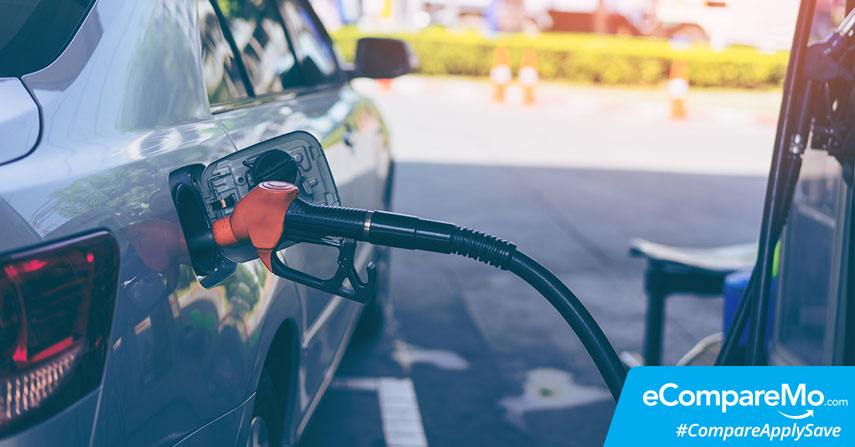Debunking Common Fuel-Saving Myths That Filipinos Fall For
4 min readWhen it comes to car care and maintenance tips, we put a premium on what people around us have to say. Whether it’s your encyclopedic tito or your seasoned mechanic, every advice they give seems to make sense.
But there are hard facts and there are myths. And when it comes to fuel-saving practices, we tend to rely heavily on hearsay. Thing is, they do more harm than good not only to your budget but also to your car in the long run.

So here, we have scoured the internet for some of the most persistent myths about fueling to, well, fill your head with more truthful information.
Myth: Warming up your car in the morning keeps your engine in tip-top shape
Letting your car run idle for a good five minutes is just a waste of gas, according to experts.
Ferman Lao, Top Gear Philippines’ Technical Editor, says on their website that the idea of keeping your engine warm is only applicable for cars made in the ’90s and earlier—specifically, ones that are equipped with carburetor.
“Any engine made after that time will automatically warm itself up upon startup (assuming it’s a cold engine) at about 1,500rpm and normalize to the typical idle rpm of about 750-900rpm,†he explains.
Myth: Colder weather means more fuel mileage
Physics has taught us that molecules get denser in low temperatures. That means gassing up at night will give you thicker fuel for the same volume, and therefore more power for every drop.
“While density may change with temperature, underground storage tanks are well below the surface, meaning, the stored fuel is almost at a constant temperature,†writes the Manny de los Reyes on the Philippine Star.
He adds that even if it is pumped to underground tanks for delivery, “fuel temperature stabilizes quickly, so the chances of this making any difference are slim.†Sleep it off and fuel up when it’s safer.
Myth: You should always fill up your tank to the brim
You’ve probably seen people rocking their cars supposedly to cram more pumps down their tanks. But this dangerous habit of topping off your gas tank after the nozzle automatically shuts off already will damage the car, the environment, and can possibly cause fires.
“It can actually harm your car’s evaporative control system, mainly the evaporation canister that prevents fuel vapors from escaping into the atmosphere,†warns auto blog CarGuide.ph. “This system is designed to re-burn vapors, not liquid gasoline that gets pushed out of the gas tank when you fill up.â€
Also, your petroleum overflowing from your tank can harm the environment and potentially start a fire. Don’t blame Billy Joel when that happens.
Myth: Manual-transmission cars are more fuel-efficient
While this may be true in the past, better technologies equipped in AT cars have proven that they’ve come a long way and in fact, exceeded their big brothers in terms of fuel efficiency.
The Department of Energy (DOE) has some interesting figures to show from the 2016 Euro 4 fuel economy run. After testing vehicles in a 280-kilometer run, they found out that among gas-powered cars, the automatic ones sipped the least fuel from their tanks.
“It’s clear that for variants that ran both automatic and manual transmission, it was the former that fared better. For instance, the Mitsubishi Mirage (27.05 km/L vs. 25.64 km/L) and the Suzuki Celerio (29.14 km/L vs. 27.70 km/L),†wrote Ulysses Ang on the Philippine Star.
Myth: Fiddling with your phone while gassing up may cause an explosion
Fortunately, radio waves are not enough to ignite gasoline and start a fire. However, there’s a good reason you should put down your phones while refueling and train your eyes on the pump.
“The most likely reason mobile phone usage is discouraged while refueling is that it can cause distractions. When dealing with a volatile and flammable chemical, it’s best to pay attention to what’s going on,†says Manny de los Reyes. Your friend requests can wait.
Myth: Not going full tank means lighter weight
Some motorists believe that a full tank means extra weight and can therefore reduce your mileage. If that’s the case, then you might as well forbid anyone from boarding your car.
“The weight of a full tank is not significant enough to adversely affect your car’s fuel mileage,†writes Tracy Carpena on Top Gear Philippines. “In fact…it is less efficient to fuel up with half a tank twice than fill up once with a full tank.â€
Think of it this way: taking multiple trips to the gas station instead of going for one solid refill will mean more stops. This won’t just eat up your time but also your money. So wise up whenever you gas up.
